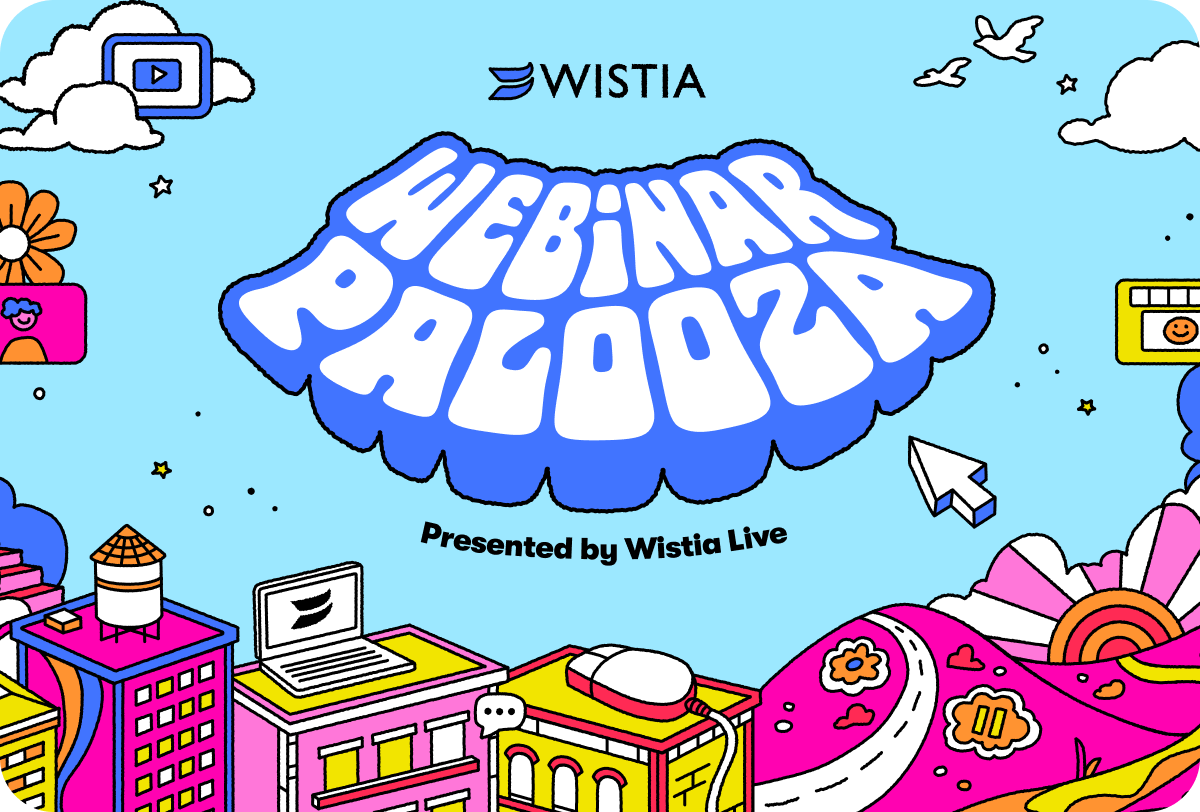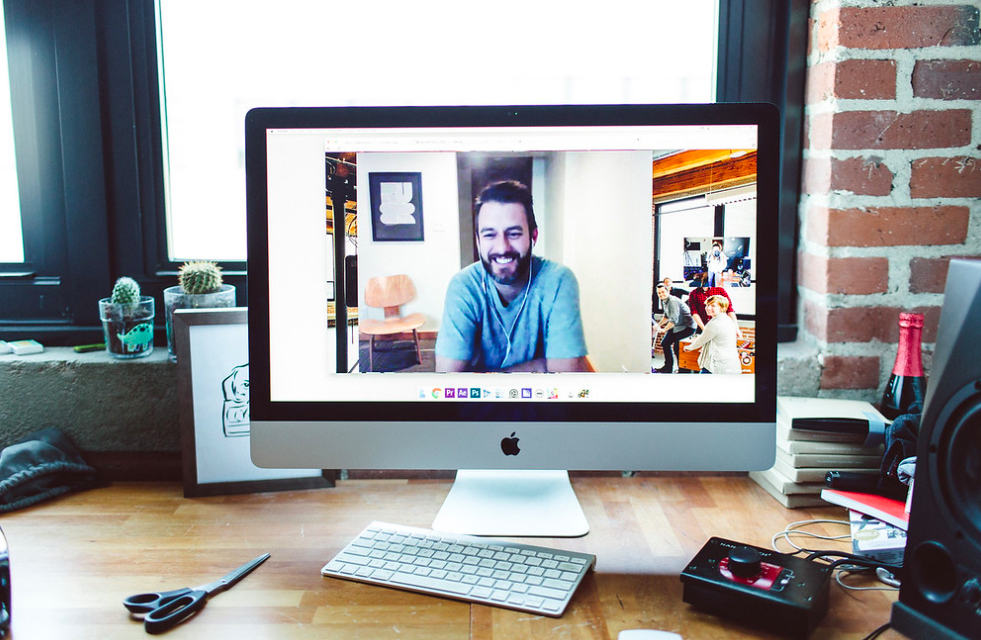The Science Behind Why No One Likes to Be on Camera
January 12, 2017
Topic tags
If you don’t like watching yourself on video, you are definitely not alone.
But you shouldn’t let this prevent you from making an awesome video for your business. With a better understanding of your brain, you can start getting in front of the camera and actually enjoying it.
How your brain makes sense of a complex world
The human brain is a marvel of natural engineering. It can understand images in milliseconds, and make decisions on that information in under a second.
As you watch a video, say our 2016 rap-up, billions of neurons are firing in different areas of your brain, trying to quickly process all of those images and sounds, allowing you to come to a decision immediately.
For the brain, quick is definitely better than perfect. This makes evolutionary sense. If you’re an early human out among the Smilodon on the savanna, you’d rather be quick and wrong, than slow and eaten.
Source: ucresearch.tumblr.com
But this speed comes with a significant trade-off. To speed things up, our brain is built around shortcuts known as heuristics. These rules help your brain make sense of the massive amount of information that it is taking in each second. Otherwise it would become overloaded.
They use our previous experience, memory, and expectation to build mental models of the world around us (Saber-toothed tiger ate my father). Our behavior then follows these models (I run from saber-toothed tiger), unless there is a wild swing in external information (Saber-toothed tiger does a little dance).
But as our brains try to fit all the information into these pre-existing mental models, it means that we actively seek out and weight information that already fits with this worldview. The effect of all these heuristics are hundreds of small cognitive biases that disrupt rational thinking.
“We actively seek out and weight information that already fits with this worldview.”
These biases affect the way we make decisions and our behavior. They aren’t irrational when they prevent us from being eaten by a tiger, but over time they have become less linked to life-or-death situations. But one bias in particular can completely screw our perception of the real world — one that means some people can only ever see their faults on camera: confirmation bias.
The bias that makes you hate you
Confirmation bias is our tendency to search and find information that backs up our previously held beliefs. We want to be right, so we look for all the information out there that is going to corroborate our thoughts. Because we believe we know best, any information that does confirm previous beliefs takes precedence over information against what we hold dear.
This means that we are constantly following a fallacy.
If you think that you’re awkward on camera, you’ll be looking for evidence of that when you review the footage. You will want to confirm your belief. No matter how smoothly you presented your pitch, how funny you were, or how natural your performance was, any slight hint of clumsiness will confirm you are a real-life Mr. Bean.
“If you think that you’re awkward on camera, you’ll be looking for evidence of that when you review the footage.”
And because your brain really wants to make you suffer, nothing anyone else can say will change your thoughts. Your memory for feedback is also dependent on confirmation bias. A 1998 study by George Washington University psychologist Amber Story showed that our ability to remember feedback depends on whether that feedback is congruent with our own self-esteem.
If one person says you’re awkward, you’ll remember that. If ten people say you’re great, you’ll forget about them. Some people will go even further, only seeking out feedback from people who will back up their negative perceptions of their own self.

All-in-one Video Platform
Streamline Your Webinar Process
The evil side of the familiarity principle
But confirmation bias doesn’t do its nefarious deeds alone. It is backed up by an odd quirk of the familiarity principle. The familiarity principle states that we prefer people, objects, products, and so forth that we are more familiar with. This is probably why you want to appear on camera in the first place — to show your customers who you are, get them familiar with you, and let that build preference and trust.
But the underlying psychology of the familiarity principle, the mere-exposure effect, doesn’t work for the face you’d think you would be most familiar with — your own.
Considering you’ve been exposed to your own face in a mirror pretty much your entire life, it would seem reasonable that familiarity would breed self-love. But the face you see in the mirror isn’t your true face. It is a mirror image. And your face isn’t symmetrical. Therefore your reflection isn’t the same as your true face that the rest of the world sees, and that you see when it’s recorded.
This phenomenon was studied at the University of Wisconsin–Milwaukee back in the 1970s. Researchers Theodore Mita, Marshall Dermer, and Jeffrey Knight asked participants in their study which of two images of themselves did they prefer. One was their actual face, the other a mirror image.
The researchers also showed them real and mirror images of friends and family. The researchers found that:
“In two studies, Person was found reliably to prefer her mirror image over her true image, whereas the reverse tendency characterized preferences of Person’s Friend or Lover.”
Side note: There has been an unfortunate decrease in the word “lover” in academic journals since the seventies.
All this means that you aren’t actually that familiar with your own face. You have always seen a reversal of it. When you see it in a photo or on video you can still recognize it as you, but it doesn’t look right. In the Milwaukee study, the participants could never quite describe why they liked their mirror face to their true image. The difference is barely perceptible to your consciousness, but your brain does know the difference and prefers the mirrored you.
“All this means that you aren’t actually that familiar with your own face.”
4 ways to overcome your video fears
Confirmation bias and the peculiarities of the mere-exposure effect come together to make sure that seeing yourself on screen is anxiety-inducing.
But you are literally the only person in the world that thinks this! No one else has the same biases about you, and no one else sees the mirrored you. You are the only one for whom looking at you on screen is odd.
Once you are conscious of your biases you can start to fight back against them. If you are still a little afraid of getting in front of the camera, here are a few things to think about to help calm your fears.
1. Remember, your brain is lying to you. The first thing to think every time you see yourself on film is “Quiet, brain!” If you take away anything from this post, it should be an understanding of the psychological components underlying your fears of being on camera. Your fear is just your brain trying to use a shortcut to understand the world — and getting it wrong.
2. Refocus your attention. If your fears are getting in the way of a good performance while making your video, think about ways to refocus your attention away from the camera. This is why actors can do their jobs. They aren’t focused on the camera. Instead, they’re focused on their craft. Concentrate even more on making sure you’re delivering value to your audience.
3. Don’t be afraid to ask for some help. If you’re feeling nervous about jumping in front of the camera, ask for what you need. Breaks, water, a readily accessible script — you name it! The more comfortable you feel, the better the shoot will go. Advocating for yourself can make a big difference.
4. Realize that people don’t care. The mere exposure effect, the confirmation bias, the negative self-image. All of these are only in your mind. Other people don’t care. So get out there, and give it your best shot!






